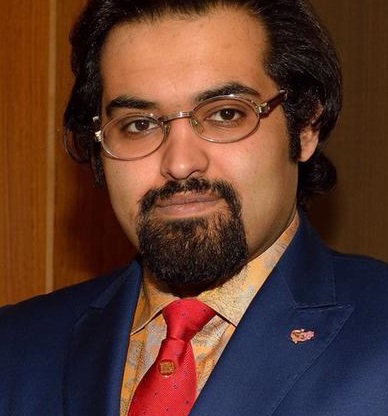
A British member of parliament was paid £15,000 (almost $21,000) for helping to organise a "Qatar opposition" conference in London, it emerged yesterday.
Daniel Kawczynski, a Conservative MP and a strong supporter of Saudi Arabia, declared the money in the register of members' interests, saying the payment was "for speaking at a conference; consultancy services; research; and attending meetings". According to the register this consumed 48 hours of his time, which works out at an hourly rate of £312.50.
Another MP, Iain Duncan Smith – a former leader of the Conservative Party – who spoke at the conference received £4,000 for what he described in the register of interests as two hours' work.

Lord "Paddy" Ashdown, a former leader of the Liberal Democrats, also received payment for speaking at the conference, though House of Lords rules do not require him to declare how much he got.
The discovery of the payments was reported yesterday by BuzzFeed News and Middle East Eye. (Both articles give a detailed account, so I won't repeat it here.)
The one-day conference took place last September in the midst of the Gulf squabble over Qatar. With encouragement from Saudi and Emirati media, it was supposed to mark the launch of a Qatari opposition movement led by Khalid al-Hail, a British-based Qatari businessman who talked about the possibility of a "bloodless coup".
The conference proved controversial at the time, mainly because of Qatar supporters' antics in trying to prevent it going ahead. Saudi Arabia and the UAE clearly saw it as furthering their political goals but it seems also to have been a vanity project by al-Hail, who has an inflated view of his own importance.

Besides al-Hail and the three British politicians mentioned above, there were 10 other speakers who presumably also collected fees. If they were paid at the same rate as Duncan Smith, that would have added a further £40,000 to the cost.
Al-Hail claimed to have been paying for the conference out of his own pocket, and there's no doubt it was a hugely expensive affair. It took place at the top-class Intercontinental Hotel in Greenwich, in the Arora ballroom (capable of seating up to 1,800 people). Dozens of helpers were employed, along with a security team and three red-coated toastmasters. Two PR firms were hired – one in the US, one in Britain – and a conference website was set up. Those attending were treated to a high-quality buffet lunch and, on leaving, presented with a thick and expensively-produced dossier on Qatar.
In that respect it was a typical example of the Gulf's propaganda wars where ridiculous sums are spent on political games with scant regard to what they actually achieve. Regardless of the money lavished on it, and despite free admission (with a free lunch thrown in), the conference proved to be an embarrassing flop. Only about 150 people turned up. Meanwhile, almost nothing has been heard since from al-Hail and his Qatari opposition movement.


 RSS Feed
RSS Feed
